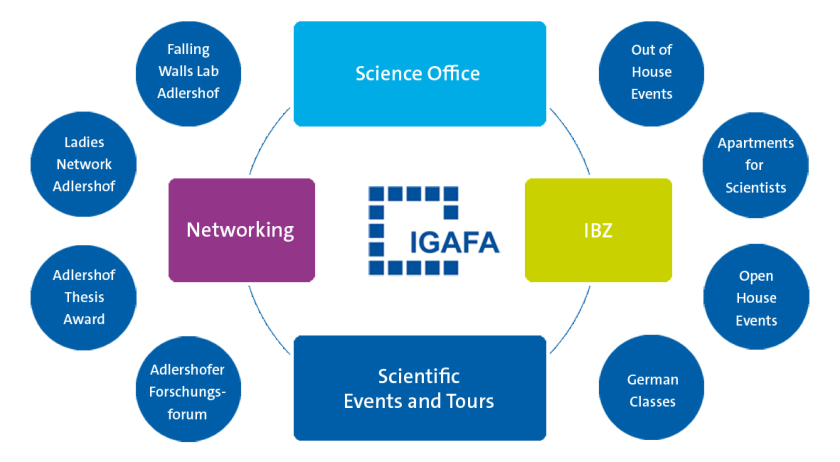HZB is member of the IGAFA initiative in Adlershof

What are the activities of IGAFA?
Since September 2020, the Helmholtz-Zentrum Berlin is again a member of IGAFA - the Initiative of Non-University Research Institutions in Adlershof. Prof. Dr. Jan Lüning, scientific director of the HZB, was elected to the association's board.
The tasks of IGAFA include the promotion of interdisciplinary cooperation, the promoting of scientific content through publications and events and the care of international guests in two meeting centers (see figure).
In addition, IGAFA sees itself as an interface between research and the public interested in science. For this reason, IGAFA participates, for example, in the Adlershof Dissertation Prize, the Long Night of Sciences, or supervises the Adlershof Ladies Network.
(sz)
https://www.helmholtz-berlin.de/pubbin/news_seite?nid=22100;sprache=en
- Copy link
-
Compact electron accelerator for treating PFAS-contaminated water
So-called forever chemicals or PFAS compounds are a growing environmental problem. An innovative approach to treating PFAS-contaminated water and soil now comes from accelerator physics: high-energy electrons can break down PFAS molecules into harmless components through a process called radiolysis. A recent study published in PLOS One shows that an accelerator developed at HZB, based on a SRF photoinjector, can provide the necessary electron beam.
-
The twisted nanotubes that tell a story
In collaboration with scientists in Germany, EPFL researchers have demonstrated that the spiral geometry of tiny, twisted magnetic tubes can be leveraged to transmit data based on quasiparticles called magnons, rather than electrons.
-
Bright prospects for tin perovskite solar cells
Perovskite solar cells are widely regarded as the next generation photovoltaic technology. However, they are not yet stable enough in the long term for widespread commercial use. One reason for this is migrating ions, which cause degradation of the semiconducting material over time. A team from HZB and the University of Potsdam has now investigated the ion density in four different, widely used perovskite compounds and discovered significant differences. Tin perovskite semiconductors produced with an alternative solvent had a particular low ion density — only one tenth that of lead perovskite semiconductors. This suggests that tin-based perovskites could be used to make solar cells that are not only really environmentally friendly but also very stable.
